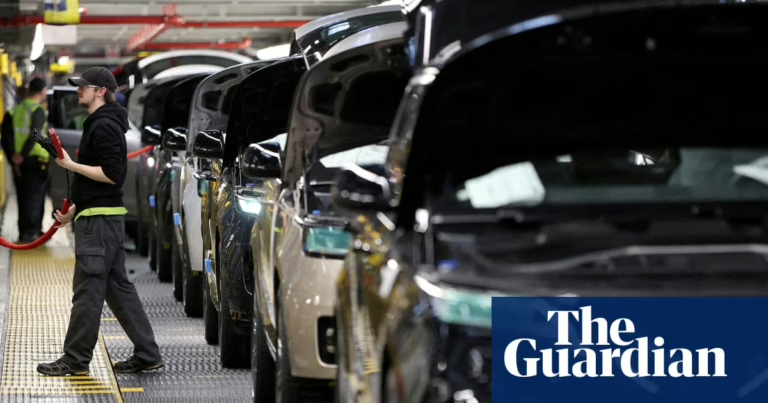In the wake of a debilitating cyber-attack that halted Jaguar Land Rover’s operations, smaller suppliers have been compelled to offer their personal residences as collateral to secure emergency financing, with no direct financial aid from the UK government for component manufacturers a month after the incident.
As the UK’s largest automotive employer, Jaguar Land Rover (JLR) is exploring the possibility of providing advance payments to its primary suppliers to help revive production. However, smaller subcontractors warn that without immediate financial support, they face imminent insolvency.
Since the end of August, JLR, the maker of Jaguar and Land Rover vehicles, has not produced any cars. The company recently announced plans to resume limited manufacturing “in the coming days.”
This production halt has left many parts suppliers without revenue for over a month, pushing them into precarious financial situations.
The Confederation of British Metalforming (CBM), representing numerous JLR suppliers, has cautioned that without swift government intervention, the entire UK automotive supply chain risks irreversible harm, endangering thousands of jobs and undermining an industry prioritized for expansion by the Labour government.
Michael Beese, managing director of Genex UK, which fabricates metal components for several JLR suppliers, revealed that banks require personal guarantees-often involving family homes-to approve costly loans.
“I explored loan options but was quoted a 16% interest rate and asked for personal guarantees,” Beese explained. “It’s unfair to jeopardize my business and family home when I’m not at fault.”
Due to cash flow issues, Beese has had to reduce Genex’s workforce from 17 employees. Other suppliers have expressed concerns that taking loans might conflict with directors’ legal duties.
According to insiders, JLR is contemplating upfront payments to its direct suppliers to expedite cash flow. However, since JLR lacks direct contracts with many smaller suppliers, it depends on larger suppliers to pass funds down the chain promptly.
Business Secretary Peter Kyle announced a government-backed guarantee for a £1.5 billion private loan to JLR, though the agreement has yet to be finalized. Additionally, JLR secured £2 billion in new bank loans without government backing.
Despite this, no direct government funding has been allocated to JLR or its supply chain since the cyber-attack. Industry insiders suggest the £1.5 billion loan guarantee was expedited ahead of the Labour party conference in Liverpool but fails to address the core challenges stemming from the cyber incident.
While the loan guarantee aims to assist parts manufacturers indirectly, smaller suppliers fear the funds will take too long to reach them, as payments must flow from “tier one” assemblers to the smaller “tier two” companies supplying them.
Under UK regulations, tier one suppliers have up to 60 days to settle invoices with their tier two counterparts, delaying critical cash flow.
The CBM highlighted to the Guardian that “second-tier and lower-tier suppliers are unlikely to receive funding in the near term” and urged the government to provide direct financial assistance to these smaller companies.
Steve Morley, CBM president, emphasized: “Direct support is essential to swiftly channel funds where they are most needed to prevent the collapse of the supply chain.”
“While JLR is rightly prioritizing payments to first-tier suppliers, it’s crucial to ensure that smaller and second-tier suppliers receive support so the entire network is stable when production resumes,” Morley added.
Thousands of workers across the supply chain have been laid off, according to industry sources.
Beese shared, “We continued producing to build inventory and keep staff employed, but we’ve exhausted storage and materials. With no clear guidance from customers, I’ve had to make difficult decisions, including layoffs.”
The CBM has proposed utilizing the British Business Bank’s growth guarantee scheme, which offers government-backed loans to smaller enterprises. Other suppliers have requested temporary tax relief and wage support measures from ministers.
A Labour party spokesperson stated, “The government acted swiftly to ensure JLR and its suppliers could access support promptly, recognizing the tens of thousands of jobs at stake.”
Smaller suppliers have also called for clearer communication from JLR regarding production restart timelines to better plan their survival strategies during the ongoing uncertainty.
Owned by India’s Tata Group, JLR has been unable to provide firm restart dates due to the need to rebuild its entire production infrastructure, which has delayed placing orders for parts. The company has established a dedicated helpdesk for suppliers.
Requests for comment were made to the government’s business department and the British Business Bank, both of which declined to respond.






















